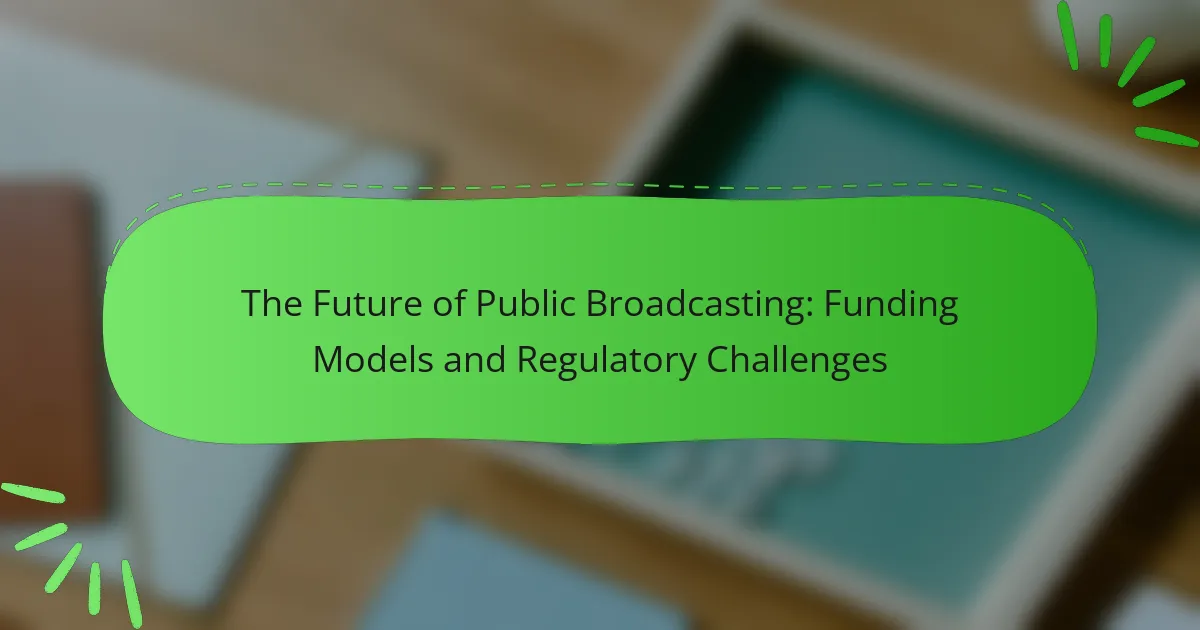Public broadcasting is facing key challenges that include funding sustainability, audience engagement, and regulatory pressures. The decline of traditional revenue sources, such as government support and license fees, is compounded by competition from digital platforms. To remain relevant, public broadcasters must innovate by adopting digital platforms, interactive content, and data-driven programming that cater to evolving […]
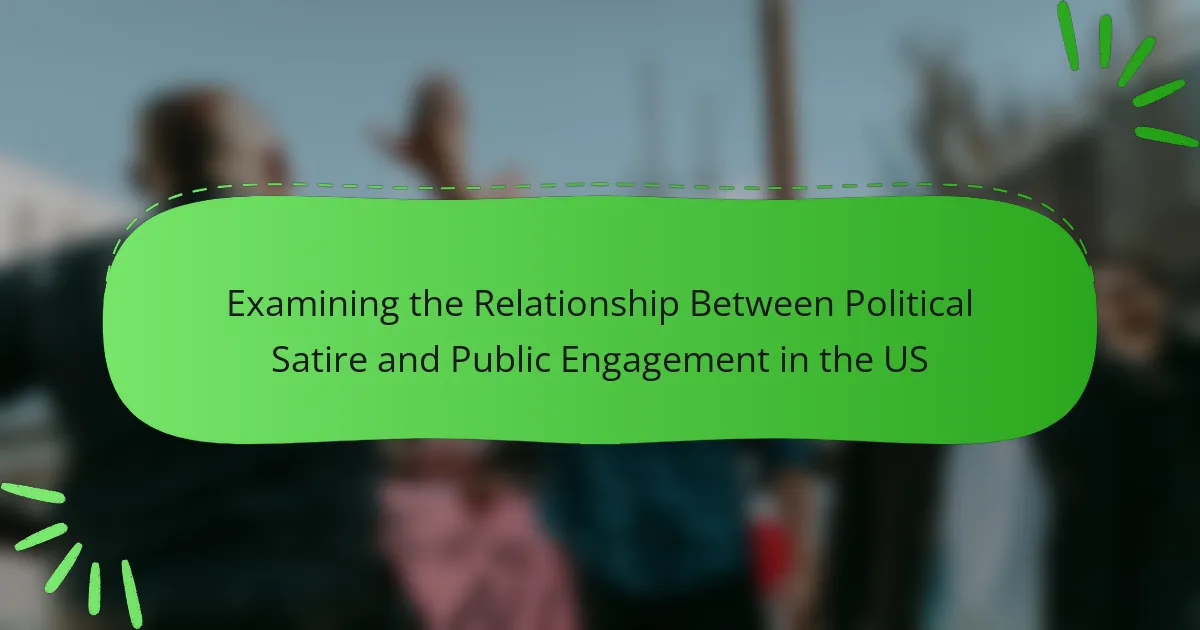
Examining the Relationship Between Political Satire and Public Engagement in the US
Political satire is a powerful medium that significantly influences public engagement in the United States. It critiques political figures and policies through humor, making complex political issues more accessible to a wider audience. Research indicates that exposure to political satire enhances political knowledge and encourages viewers to seek additional information on political topics. Furthermore, political […]
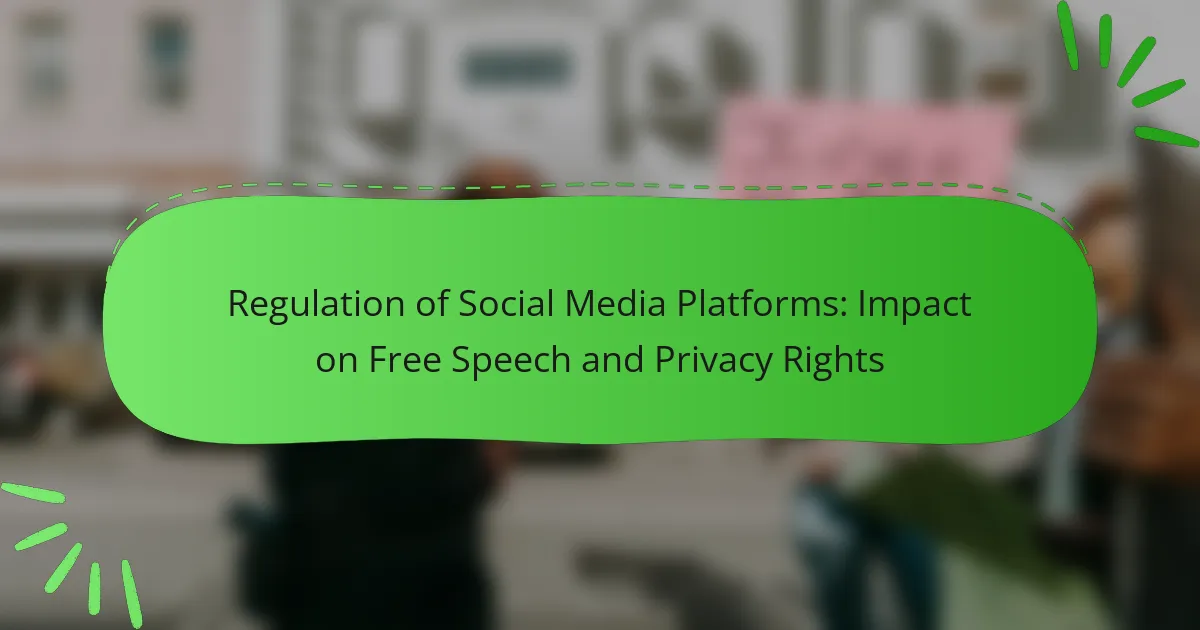
Regulation of Social Media Platforms: Impact on Free Speech and Privacy Rights
Regulation of social media platforms encompasses the legal frameworks that govern their operations, focusing on user safety, data privacy, and content moderation. These regulations, implemented by governments globally, aim to combat issues such as misinformation and hate speech while ensuring transparency in data usage and user consent. The article examines the impact of these regulations […]
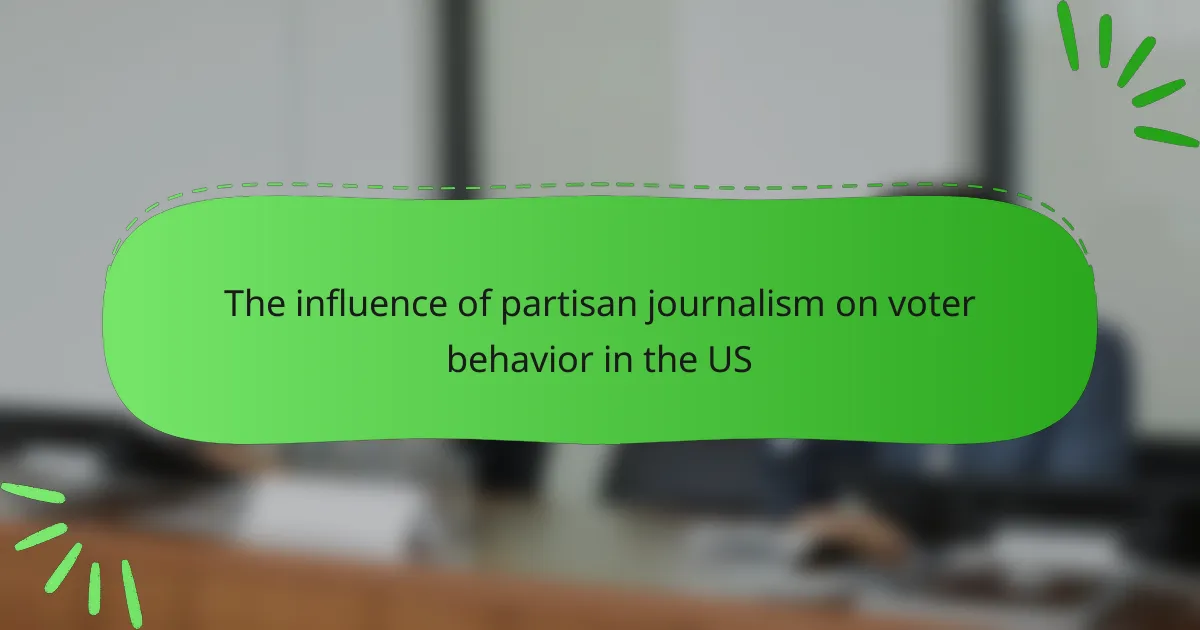
The influence of partisan journalism on voter behavior in the US
Partisan journalism is a significant factor influencing voter behavior in the United States. It shapes public perception by framing issues in alignment with specific political ideologies, leading to stronger partisan identities among individuals exposed to such media. Research indicates that 62% of Americans perceive news organizations as biased, which contributes to increased polarization and can […]
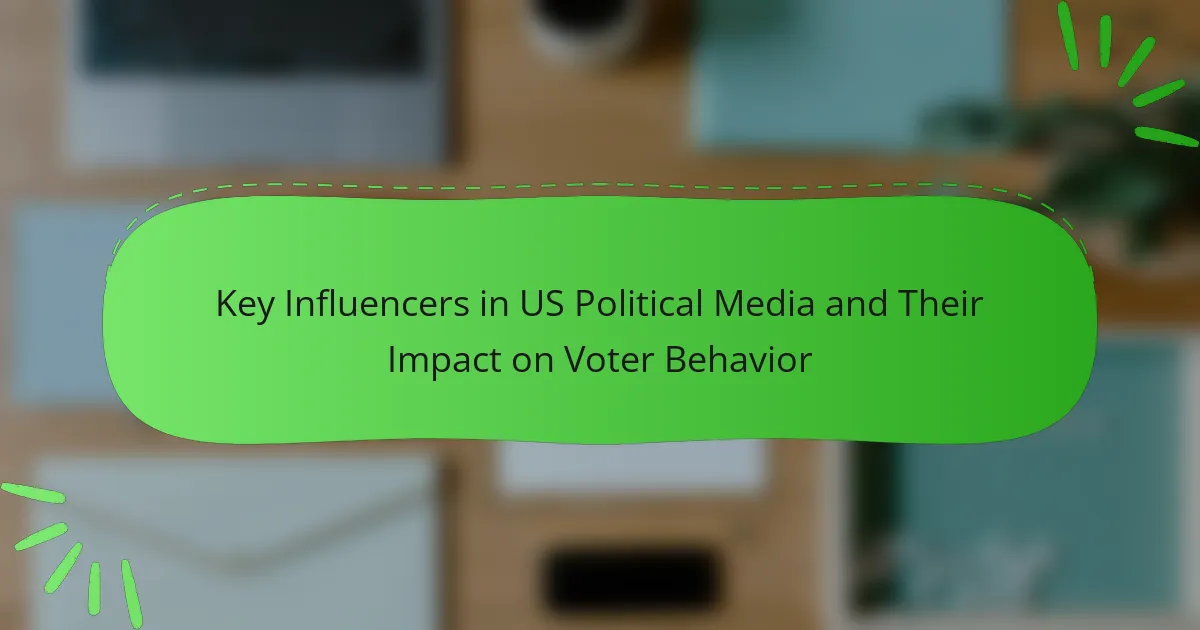
Key Influencers in US Political Media and Their Impact on Voter Behavior
Key influencers in US political media comprise major news networks, social media platforms, and influential journalists, all of which significantly shape voter behavior and public opinion. Prominent networks such as CNN, Fox News, and MSNBC provide extensive coverage that influences audience perceptions, while social media platforms like Twitter and Facebook facilitate direct communication between politicians […]
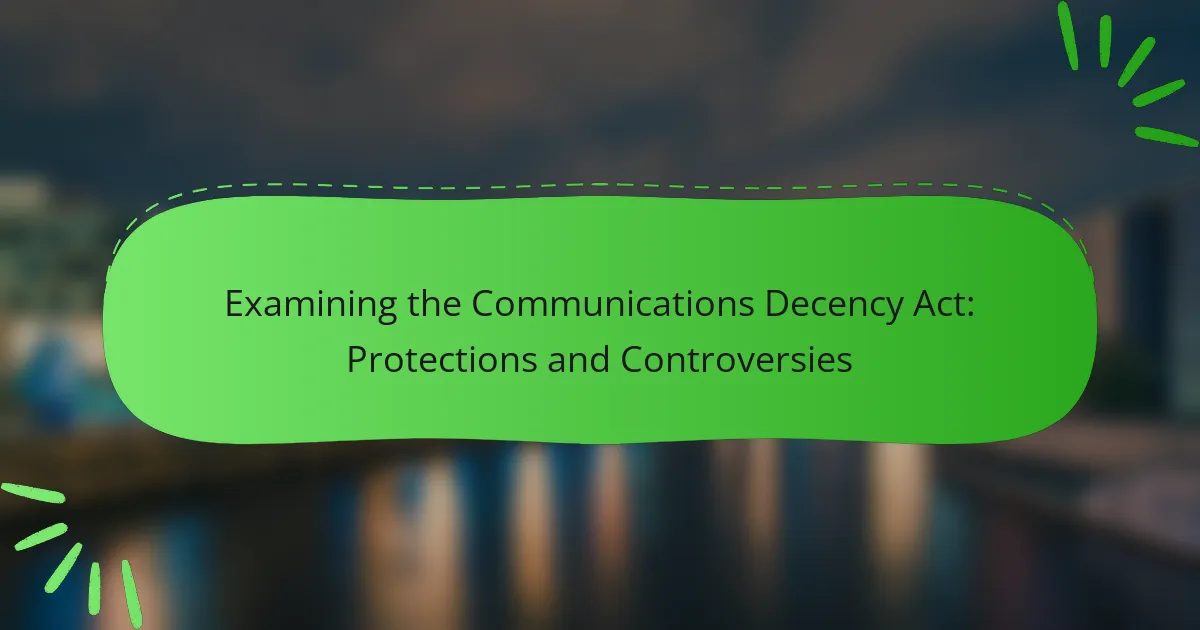
Examining the Communications Decency Act: Protections and Controversies
The Communications Decency Act (CDA) is a U.S. law established in 1996 aimed at regulating online content and protecting minors from harmful materials. A key component of the CDA is Section 230, which grants online platforms immunity from liability for user-generated content. The article examines the implications of the CDA, particularly the controversies surrounding Section […]
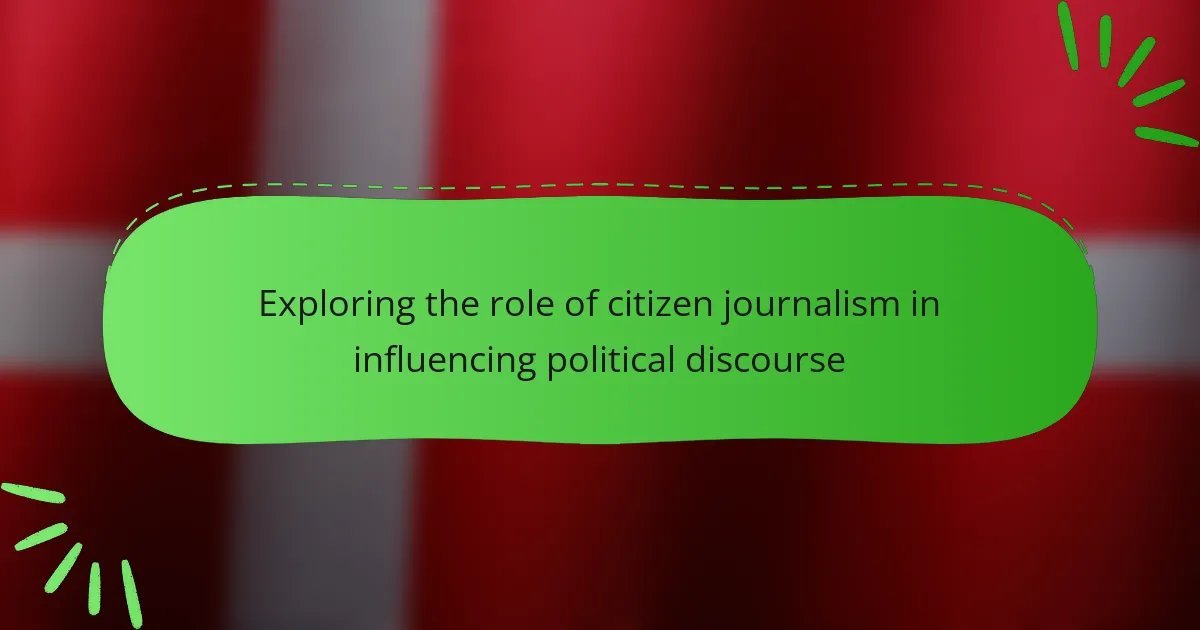
Exploring the role of citizen journalism in influencing political discourse
Citizen journalism is a form of media where individuals report news and events, often through social media platforms, bypassing traditional media gatekeeping. This practice plays a critical role in political discourse by offering alternative perspectives and highlighting issues that mainstream media may overlook. It enables real-time coverage of events, particularly during crises or political unrest, […]
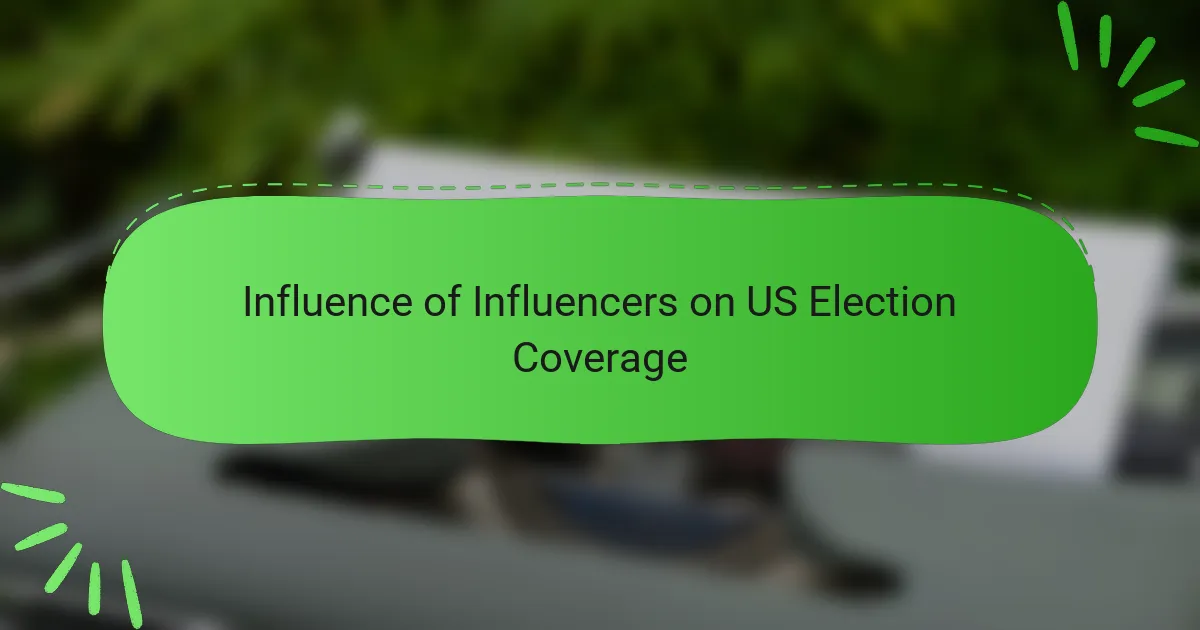
Influence of Influencers on US Election Coverage
Influencers play a pivotal role in shaping US election coverage by amplifying political messages through social media, particularly among younger demographics like millennials and Gen Z. Their endorsements and relatable content significantly impact voter engagement, with studies showing that 50% of young voters are influenced by social media personalities in their voting decisions. Key attributes […]
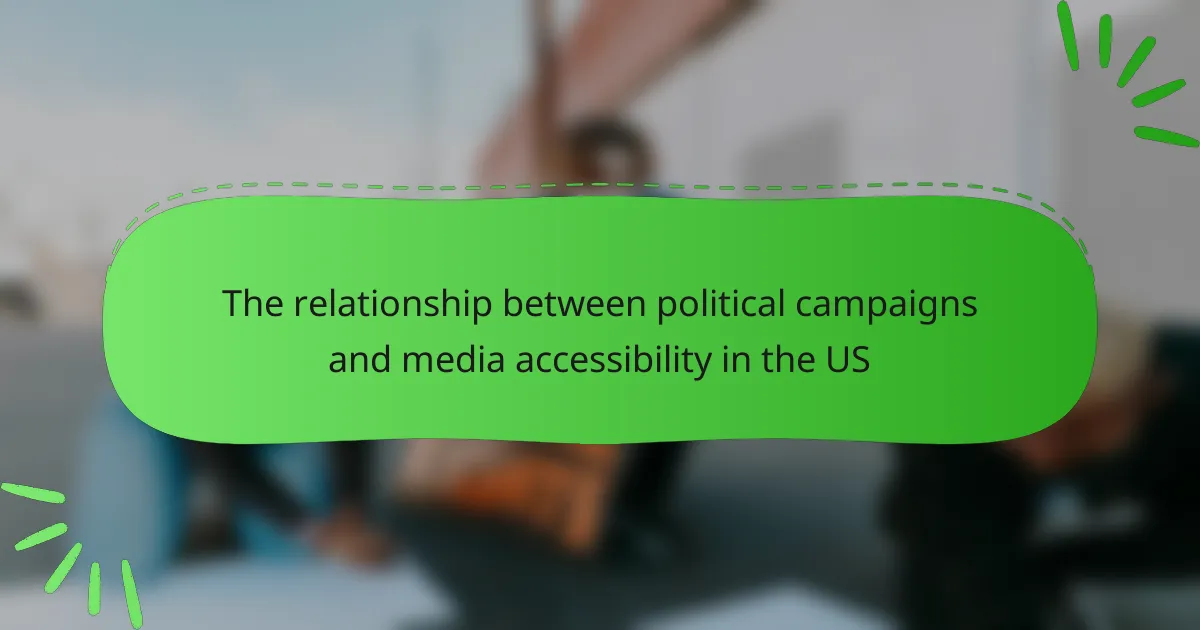
The relationship between political campaigns and media accessibility in the US
Political campaigns in the US are significantly shaped by media accessibility, which refers to the ease with which candidates can communicate their messages to the electorate through various platforms. Enhanced media accessibility allows campaigns to engage with a wider range of voter demographics, particularly through social media, which has proven effective in reaching younger voters. […]
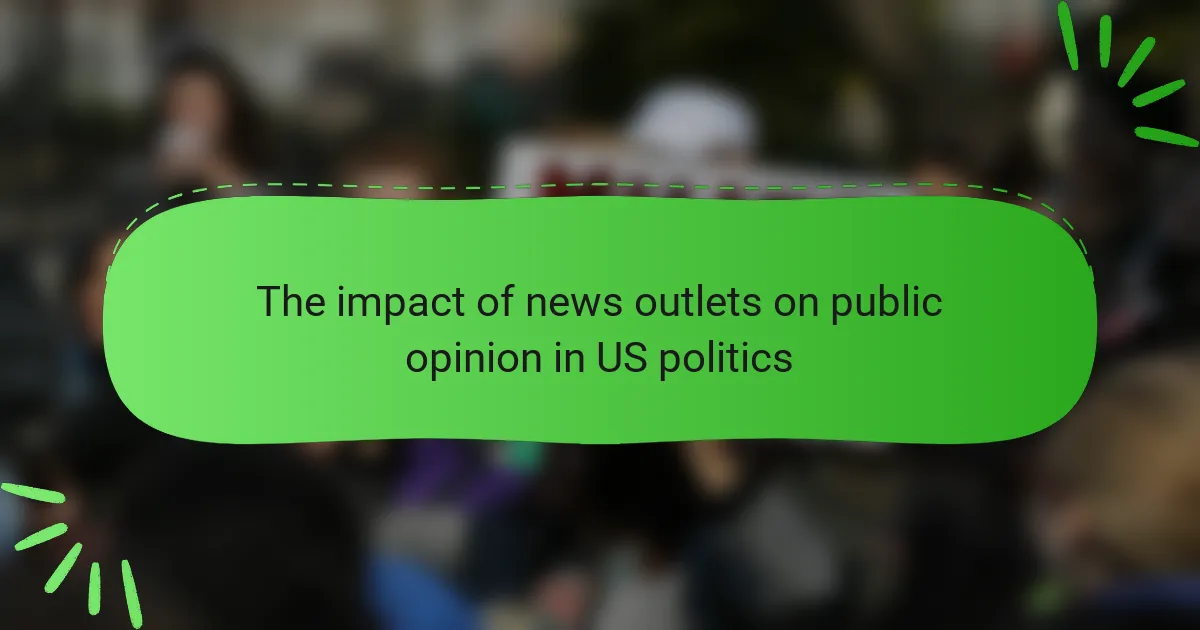
The impact of news outlets on public opinion in US politics
News outlets play a pivotal role in shaping public opinion within the United States political landscape. They influence perceptions of political issues, candidates, and policies through mechanisms such as framing and agenda-setting, which determine the topics that receive public attention. Traditional media, including newspapers like The New York Times and television networks such as CNN, […]
